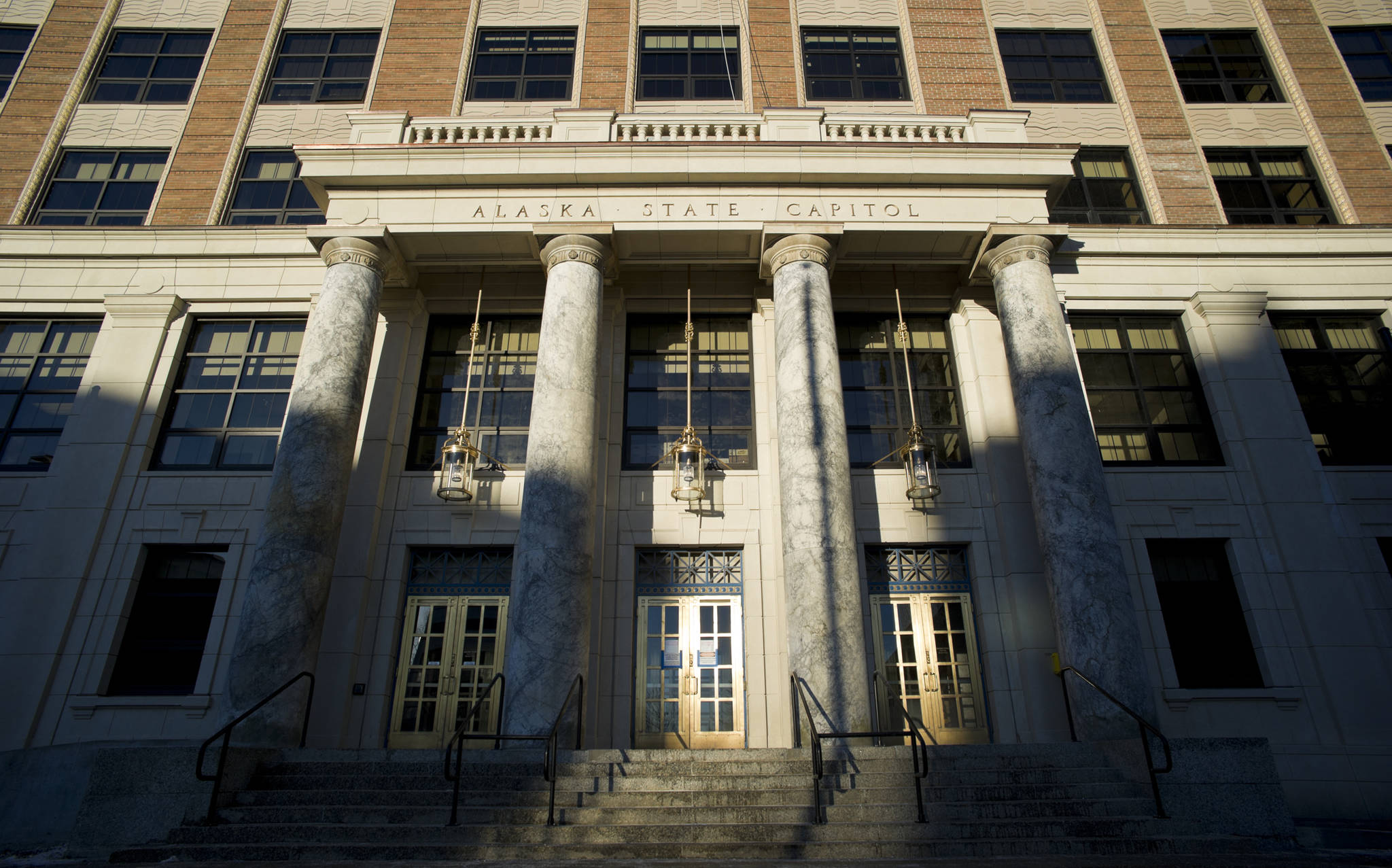It was a mic-drop moment on a trampoline.
In a surprise Thursday night move, the Alaska House of Representatives attempted to avert a statewide government shutdown by forcing the Alaska Senate and Gov. Bill Walker to accept a take-it-or-leave-it deal.
The Senate left it, and Alaska’s state government is now two weeks from shutting down.
“Tonight was not an ideal end to the session,” said Speaker of the House Bryce Edgmon, D-Dillingham, shortly after the House adjourned.
In a series of caucus-line votes, the coalition majority that runs the House inserted a version of the state operating budget, funded primarily with savings from the earnings reserve of the Alaska Permanent Fund, into the state’s capital construction budget. The House approved that combined budget and adjourned a special session called by Walker.
With the House having left the special session, the Senate must accept the House’s version of things or reject it and end the special session with no deal.
While the Senate took no official action Thursday night, Senate President Pete Kelly has left little doubt.
In a statement, he said the Senate Majority is “deeply disappointed in the House Majority’s actions tonight.”
“Contrary to the House Majority’s rhetoric, their budget and adjournment tonight does not avert a government shutdown, but forces the Legislature into an additional special session that adds costs, grows uncertainty for the public and private sectors, and further hampers the ability of the two bodies to reach a compromise,” his statement said.
Walker likewise condemned the House’s move.
“We were surprised by the House Majority’s actions tonight,” the governor said in a prepared statement. “They did not get the job done for Alaska. A compromise is required to protect Alaskans and put the state on a stable fiscal path.”
The House’s actions and the Senate’s expected response mean lawmakers will head into a second special session in the same position that they began the first one 30 days ago.
They must pass a state operating budget (and find a way to pay for it) before July 1, the start of the state’s fiscal year.
If lawmakers cannot agree upon an operating budget, all of the state’s 18,000 public employees will be laid off and become eligible for unemployment — if there is anyone left to issue the checks. The Alaska Marine Highway System will shut down. No business licenses may be issued. The state’s multimillion-dollar commercial salmon fisheries, prized around the world, will close for lack of management.
[State shutdown would affect every man, woman and child in Alaska — including the dead]
The failed House Majority move included a $2,200 Permanent Fund Dividend, $100 million in back payments to oil and gas subsidies, no cuts to education, and some reductions in state general fund spending.
Thursday’s action came after the House Majority refused to budge from its entrenched position that the state must solve its $2.7 billion annual deficit with a comprehensive fix this year.
Toward the end of the special session, the Senate Majority abandoned its plan for fixing the deficit and began favoring a one-year budget deal to avoid a government shutdown.
“The Senate stands ready to negotiate a compromise on the operating budget … but you can’t get to a compromise … unless you meet us at the conference table,” Senate President Pete Kelly, R-Fairbanks, told reporters Thursday.
Is the House Majority willing to do the same?
“No,” said Speaker of the House Bryce Edgmon on Wednesday night. “It does us no good to just pass a budget that only sets the stage for us to be back here next year, fighting a more difficult battle.”
Edgmon and members of the House Majority believe that a one-year, shutdown-averting deal will merely push deficit decisions into an election year, and lawmakers may be unwilling to make tough decisions, such as imposing an income tax.
Edgmon and Kelly each said it is procedurally possible for both sides to resolve the impasse within a couple of days, but doing so would require one side or the other to move from its entrenchments.
The House Majority appeared to make such a move Thursday night, but its strategy profoundly alienated members of the Republican House Minority, who lambasted it.
“This is a travesty, an absolute travesty,” said Rep. Dan Saddler, R-Eagle River.
Members of the minority were presented with an 89-page amendment and given little time to consider it before the majority forced a vote.
“Mr. Speaker, I can tell you that I’m in shock right now,” said Rep. Lora Reinbold, R-Eagle River.
“FDR once said that Dec. 7, 1941 (is) a date which will live in infamy. (It) will be nowhere near June 15, 2017 in the annals of infamy,” Saddler said.
Rep. Lance Pruitt, R-Anchorage, singled out Speaker of the House Bryce Edgmon for particular criticism.
“Mr. Speaker, I would like to remind you that when you think about tyrants, you think about Ho Chi Minh, Robert Mugabe, and Putin. Welcome to their club,” Pruitt said.
The House’s do-or-die move Thursday night was extraordinarily rare, but not unprecedented in the annals of the Legislature. In 1993, according to Legislative records, the House passed a drop-dead bill onto the Senate, which rejected it.
If history is any guide, however, there’s room for optimism. A few days after the Senate rejected the bill, the two sides reached a compromise.
• Contact reporter James Brooks at james.k.brooks@juneauempire.com or call 419-7732.

